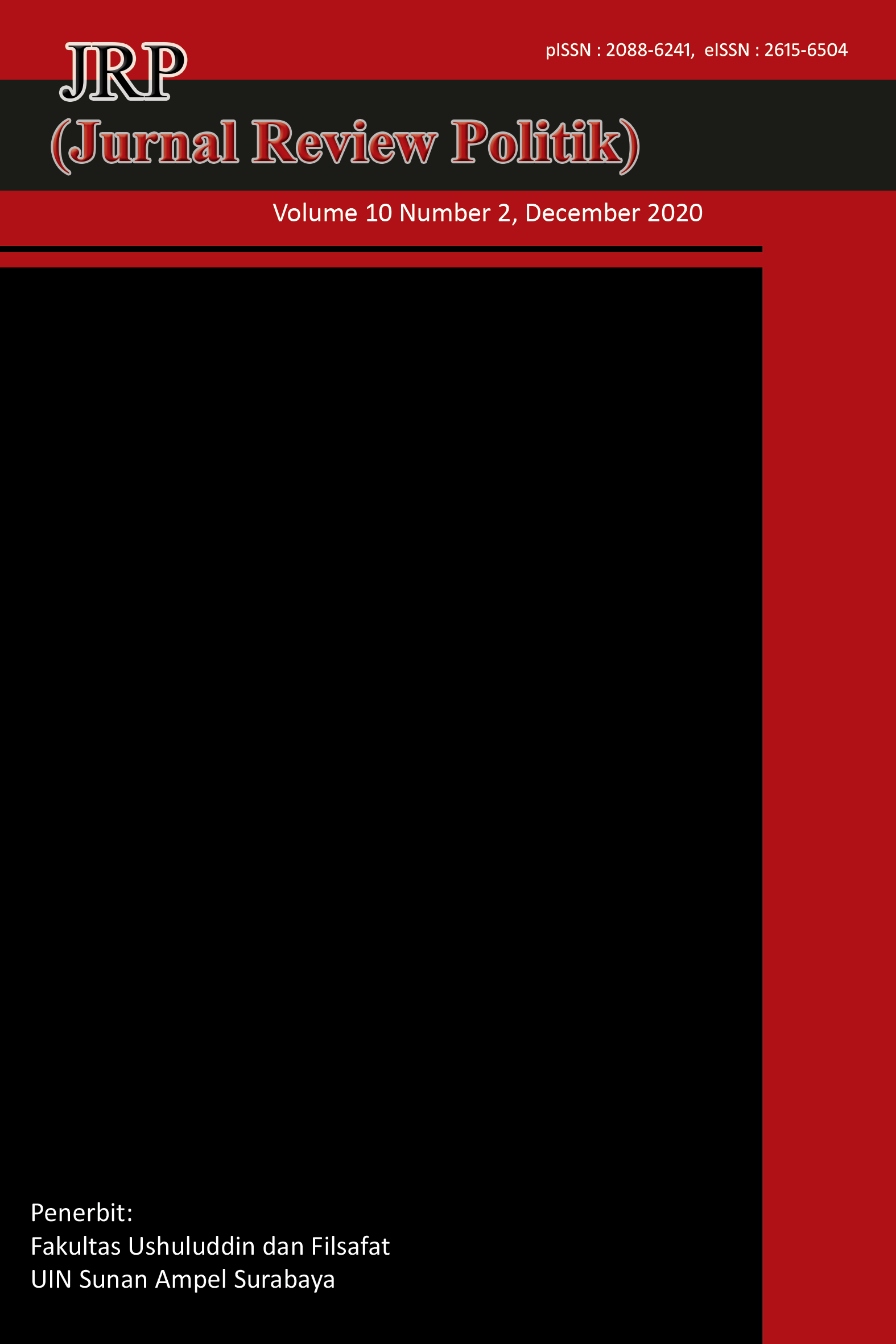Relation between the Winning of Fidesz Party with the Number of Incoming Asylum Seekers in Hungary
Main Article Content
Abstract
The migrant crisis that occurred back in 2015 has sparked various political turbulence in European countries. One of the highest “first-time application” countries is Hungary. But as the number of asylum seekers grows, the Hungarian government considered itself overburdened and thus decided to take action to limit the inflow number of asylum-seekers. This situation gives Hungarian Prime Minister Viktor Orban and his Fidesz Party a way to keep campaigning for anti-immigrant policy which he believes will gain massive support. This journal uses a mixed-research method to find out the relation between the winning Fidesz Party with the number of incoming asylum seekers in Hungary. The analysis will be based on a regression process to determine the correlation between the votes that caused the Fidesz Party to win the last five general elections of Hungary with the quantity of asylum seekers in Hungary during the election year and supported by data observed from literature research.
Downloads
Article Details

This work is licensed under a Creative Commons Attribution-ShareAlike 4.0 International License.
References
Apuke, O. D. (2017). Quantitative Research Methods: A Synopsis Approach. Kuwait Chapter of Arabian Journal of Business and Management Review, 6(11), 40–47. https://doi.org/10.12816/0040336
BBC. (2015, September 2). Migrant crisis: Migration to Europe explained in seven charts. BBC News. https://www.bbc.com/news/world-europe-34131911
BBC. (2018, July 28). Migration to Europe in charts. BBC News. https://www.bbc.com/news/world-europe-44660699
Borger, J., & Walker, S. (2019, May 13). Trump lauds Hungary’s nationalist PM Orbán for “tremendous job.” The Guardian. https://www.theguardian.com/us-news/2019/may/13/trump-latest-viktor-orban-hungary-prime-minister-white-house
DW. (2016). 2016: Deadliest for refugees in Mediterranean – DW – 09/20/2016. https://www.inspiredminds.de/en/2016-could-be-deadliest-year-for-refugees-crossing-mediterranean/a-19564113
Eldridge, A. (n.d.). What’s the Difference Between a Migrant and a Refugee? | Britannica. Retrieved April 2, 2023, from https://www.britannica.com/story/whats-the-difference-between-a-migrant-and-a-refugee
Gall, M. D., Gall, J. P., & Borg, W. R. (2007). Educational research: An introduction (8th ed). Pearson/Allyn & Bacon.
Hauswedell, C. (2020, February 13). Hungary: Only 60 people granted protection in 2019. InfoMigrants. https://www.infomigrants.net/en/post/22755/hungary-only-60-people-granted-protection-in-2019
IOM Hungary. (2014). Migration in Hungary | IOM Hungary. https://hungary.iom.int/migration-hungary
Sarstedt, M., & Mooi, E. (2014). Regression Analysis. In M. Sarstedt & E. Mooi, A Concise Guide to Market Research (pp. 193–233). Springer Berlin Heidelberg. https://doi.org/10.1007/978-3-642-53965-7_7
Stoyanova, V., & Smet, S. (Eds.). (2022). Migrants’ rights, populism, and legal resilience in Europe. Cambridge University Press.
Taylor, S. (2023, March 4). Regression Analysis. Corporate Finance Institute. https://corporatefinanceinstitute.com/resources/data-science/regression-analysis/
Than, K., & Nasralla, S. (2015, June 23). Defying EU, Hungary suspends rules on asylum seekers. Reuters. https://www.reuters.com/article/uk-europe-migrants-austria-hungary-idUKKBN0P31ZB20150623
Wike, R., Stokes, B., & Simmons, K. (2016). Europeans Fear Wave of Refugees Will Mean More Terrorism, Fewer Jobs.

